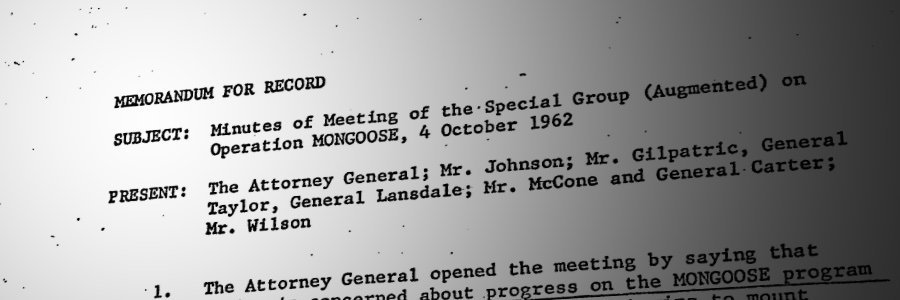Steven Aftergood directs the Project of Government Secrecy over at the Federation of American Scientists. There he writes Secrecy News and advocates for public access to government information. Mr. Aftergood is also a two-time FOIA lawsuit winner against the Central Intelligence Agency and National Reconnaissance Office, the former suit leading to the declassification of the FY 1997 intelligence budget for the first time since the agency’s inception in 1947. For this week’s Requester’s Voice, Aftergood spoke with MuckRock via email about refining your requests and the intersection of science and government secrecy.
What was your first request, and how did it go? Why did you try using public records in the first place?
In the early 1980s, I was investigating some contaminated waste dumps in southern California, and I began using FOIA to gather official information about their origins and composition. I was impressed by the process and the results. It was productive enough that I kept on going.
Where did you learn about the FOIA process?
I was working with an anti-nuclear organization in Los Angeles called Committee to Bridge the Gap. For me, it provided a terrific apprenticeship in using the tools of citizenship in the public interest, including FOIA.
Where does FOIA shine as a tool for government openness and where does it fall short?
There is a vast ocean of government records that are completely releasable but haven’t been released, for whatever reason. FOIA can be an effective tool to dislodge them and get them to the public.
It is less effective in cases where there are competing restrictions on release– such as classification, privacy, proprietary claims, etc. The Act includes lots of exemptions from disclosure, discretionary and non-discretionary, and agencies that have a culture of non-disclosure will certainly take advantage of them.
A willingness (and a capacity) to litigate denials of FOIA requests is often an advantage. If agencies know that you are poised to file a lawsuit, they tend to take your request more seriously than if that is not the case. And the litigation process can sometimes yield at least partial disclosure, though there are no guarantees and many other times it does not.
How often do you file a FOIA request?
Less often now than I used to. Maybe three or four times a month. (I actually just filed a request to the Department of Defense a few minutes ago.)
Any particular areas that you’ve found your FOIA work increasing in?
I end up doing a disproportionate number of requests for intelligence agency documents, since secrecy is intense in that area. Even when the documents I want are releasable, it often takes a formal FOIA request to get them.
What’s your favorite request you ever filed? How did it turn out?
I don’t know if I have a favorite, exactly. But I can think of a few memorable ones. I once got a ~500 page hardcopy document from the Department of Defense that was entirely blacked out. I burst out laughing. Then I got mad.
Another time, I got a full and complete response from the Patent and Trademark Office within 48 hours of submitting my request. I almost fainted.
The Department of Energy once sent me a volume of conference proceedings that I had requested under FOIA, but warned me that it contained export controlled information. DoE said that I could have it, but that if I ever released it to any foreign person, I would be subject to a $100,000 penalty!
If I were filing my first open records request, what advice would you give me?
I would say draft your request in a way that makes it as easy as possible for the recipient to fulfill it. That means specify as clearly as you can exactly what you want– a document title and report number if you have them, the author or originating office, the date or time frame in which it originated, and so forth. Or to put it another way, don’t ask for “all documents pertaining to [X].” Those kinds of vague, general requests just clog up the system and are hard to process.
And what if I were a more seasoned requester?
I would give pretty much the same advice. Requesters should also indicate a willingness to work with the agency to refine the request, if necessary.
What will bring about meaningful policy level change in the enforceability of the Freedom of Information Act?
There are different problems with FOIA that require different solutions.
One problem is that the system is backlogged and inefficient. One way to mitigate this problem is to encourage (or, someday, require) agencies to pro-actively publish as much information as possible, so as to render the FOIA process unnecessary and to reduce the FOIA workload. Ideally, FOIA should be a last resort for obtaining information, not the first option. (For the same reason, I am not a big fan of the efforts made by some public interest groups to encourage “everyone” to file a FOIA request. There is no reason why “everyone” should file a FOIA request, and if they did so then the whole system would grind to a halt.)
A different problem is the unwillingness of the judicial branch to independently review executive branch classification decisions in FOIA lawsuits. Typically, courts will confirm that a requested document has been classified by an authorized classifier, and that the agency stands by its decision to classify, but with few exceptions the courts will not say– Wait a minute, that decision makes no sense! But they should be encouraged to do that. Given the existing body of case law, a change in judicial approach to classification issues would probably require legislative intervention.
Describe your FOI process: from idea generation, to crafting language, to follow-ups, to appeals, lawsuits, and how you stay organized?
I am not as disciplined about this as I should be, especially when it comes to follow-ups. I tend to conceive, draft and file requests quickly, and then to file them away and wait to see what happens. Following up is usually a good idea. It helps establish relationships with FOIA officers, and it often prompts them to inquire within their agency for updates, which can be helpful. But I don’t do this consistently.
I have a number of requests that are more than 6 years old, which means that the statute of limitations for agency compliance has expired. If I wanted to sue over them, the lawsuit would not be permitted.
The intersection of science and government openness is something we’ve seen before but how did that intersection happen for you?
That intersection of science and secrecy is part of the heritage of my organization, the Federation of American Scientists. Long before I came along, FAS members were trying to promote greater disclosure of government information on nuclear weapons policy. Their interest was in ensuring democratic, civilian control of nuclear weapons.
For me in particular, the issue first arose when I was looking into the development of nuclear power sources for use in space, and I discovered to my surprise that there was an entire parallel program of classified technology development in that field. I wanted to know more.
Image via Wikmedia Commons




